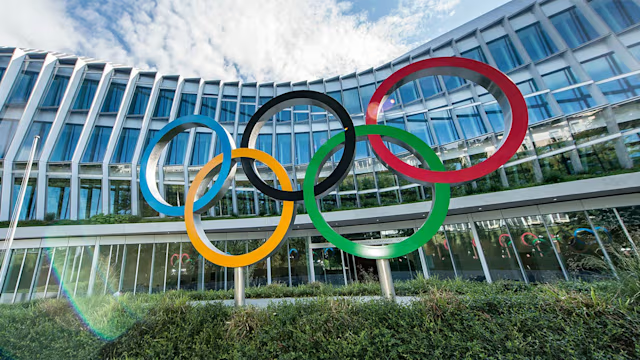Paris 2024 organizers are confident that the Olympic triathlon events will proceed as scheduled from Tuesday, despite concerns over pollution in the River Seine.
Two swimming training sessions were canceled on Sunday and Monday due to water quality issues.
Heavy rain in Paris last week has impacted the water quality, and temperatures are expected to reach 34°C on Tuesday, when the men’s event is scheduled.
The men’s event is set to begin at 08:00 local time (07:00 GMT), with a final decision to be made at 04:00 (03:00 GMT).
The women’s event is scheduled for Wednesday, and the mixed team competition will take place on Monday, August 5.
Lambis Konstantinidis, operations director for Paris 2024, stated that several backup plans are in place should the water quality not meet standards.
“One solution could be to have both men’s and women’s competitions on the same day,” he told BBC Sport.
“Another possibility would be to use our contingency days that we have built into the programme.
“We also have the possibility to see what can be accommodated when we do the mixed relay – of course, we cannot do too many things on the same day.
“At some point, and it was widely discussed, we also considered the possibility of a duathlon, but this is for us the really, really extreme case when all other fails.
“We are not there yet, and we are confident that tomorrow [Tuesday] will be a good day.”
What is the issue with the water?
Swimming in the River Seine was banned for a century due to water quality issues.
Tests in June still showed E.coli levels above the upper limits set by sports federations, but Paris mayor Anne Hidalgo recently swam in the river to demonstrate its safety.
Earlier tests this month indicated the river was clean enough for swimming, but heavy rain in Paris on Friday and Saturday has caused the water quality to deteriorate.
Thunderstorms are also forecast for Tuesday evening following a day of hot weather.
Tests are conducted daily, with Monday’s readings indicating that the water quality was below acceptable standards.
“All the water that is coming from the mountains is now coming into the city. It is not a problem in the city itself – it is everything that’s coming from before,” Konstantinidis said.
“The trends we have are very positive for us for tomorrow.
“We have at least two systems of tracking the water quality to ensure that everybody is comfortable with the water quality, and if that’s the case, we will give the green light.”
Former triathlete and BBC commentator Annie Emmerson said athletes would want to familiarise themselves with the course before the events.
“The problem with the Seine and where it’s held is there is a strong current,” she said.
“When it comes to racing, if you’re going against the current, you need to know where to position yourself best.”
Emmerson backed the decision to cancel the training sessions based on the readings, adding: “To go into a familiarisation swim when the water quality isn’t great and actually get sick before the event would be devastating for an athlete.”
The open water swimming events on August 7 and 8 are also scheduled to be held in the Seine. However, they could be relocated to Vaires-sur-Marne on the Marne River, east of Paris, if necessary.
In contrast, the triathlon swim cannot be moved because it is the first of the three legs. This has led to discussions about the option of a duathlon, which would involve dropping the swimming leg.



